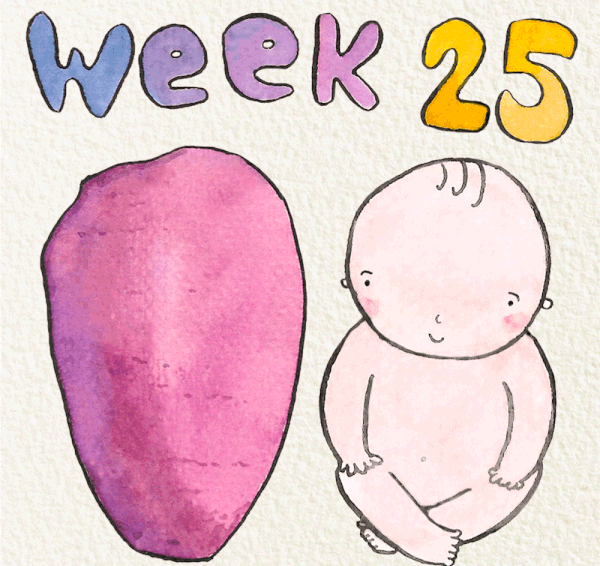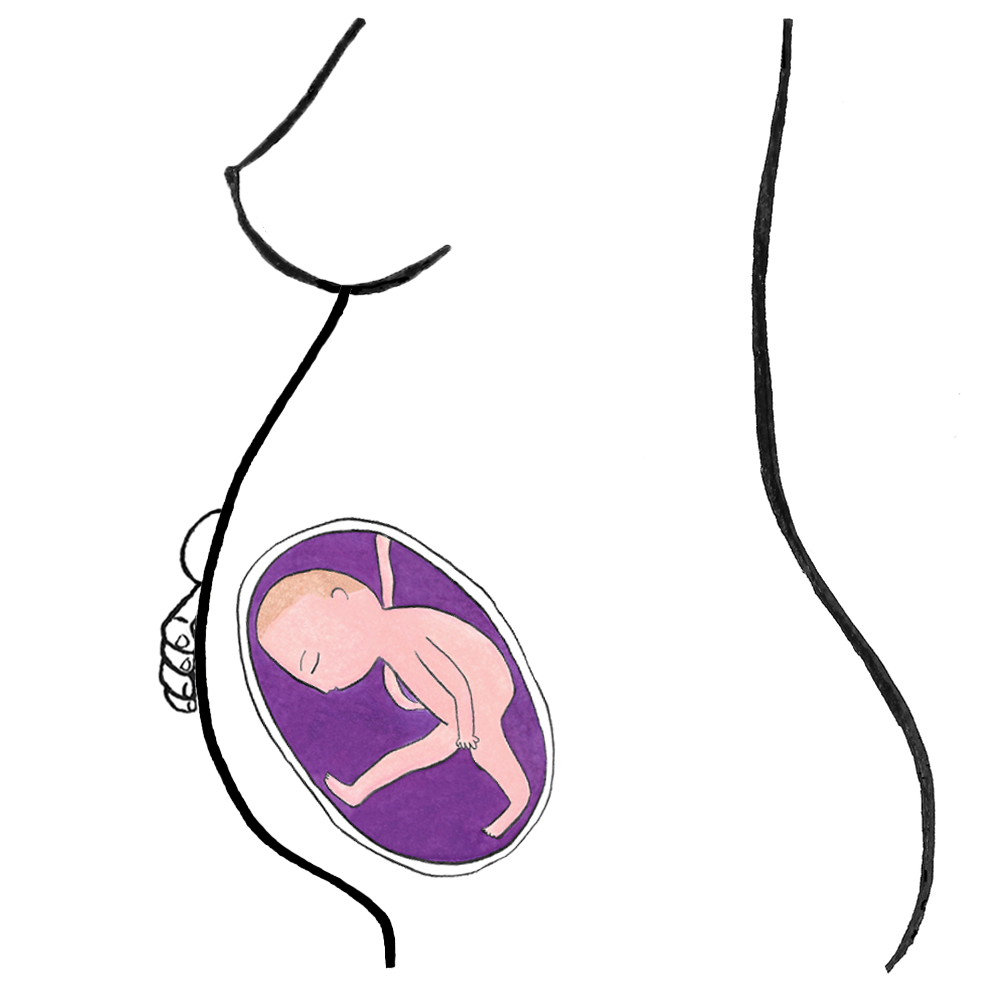25 weeks pregnant
Updates

Your Child can now respond to familiar sounds, such as your voice.
The expanding uterus puts additional pressure on your stomach, so you might have trouble digesting your meals.
Your Child’s development
At this stage, Your Child’s hair is getting thicker and pigmented, but this can change after birth. The little one now weighs about 650g and measures about 34cm in height, the size of a sweet potato.
The sense of balance: Your Child now knows which way is down and which way is up and can use the newly developed sense of balance to rotate to the right position during birth — which is head down and feet up.
In and out of sleep: Your Child spends most of the time asleep in the womb. When Your Child is asleep, rapid eye movement (REM) occurs, which indicates that {{ NAME}} is having a deep sleep and possibly dreaming too. This activity appears to be necessary for healthy brain development. But whether the brains of younger, immature fetuses cycle with sleep or are simply inactive remains a mystery.

Your development
Since the growing womb puts pressure on the structures in the abdomen, including the gut, gas symptoms may get worse.
Indigestion and Heartburn: During pregnancy, the high level of progesterone in your body slows down your gut motility. Also, it relaxes the muscles between your stomach and esophagus, allowing stomach acid to move upward.
Swellings: Water retention could swell your face, hands, and feet. In most cases, this is harmless, but get your blood pressure checked by your doctor to be sure it’s not preeclampsia, a condition characterized by high blood pressure. Untreated, it can lead to serious complications for you and Your Child.
Eat healthily: Try eating smaller, more frequent meals, and avoid rich, spicy, and fatty foods that can trigger your symptoms. Drink plenty of water too.
What you can do
A lot of things are easier to do at this stage before your belly grows too large and moving around becomes uncomfortable.
Planning a nursery: It may be time to start planning a dedicated space where Your Child will stay for the first month after birth. The nursery can be in Your Child’s room, your bedroom, or a cozy corner in your living room for the little one to sleep and stay during the day. It’s important that it’s safe and comfortable for both of you and that it’s close so that you can always hear your child whenever they need you.
To ensure excellent air, you might want to think about getting an air purifier with a HEPA filter. You may need to repaint some of the walls in your home with water-based wall paints to ensure that Your Child is not getting in contact or breathing lead, which used to be a component of paints.
A white-noise sound machine or speakers playing white noise can help the little one fall asleep, as children are used to the level of sounds your blood and heart make, which they were hearing while in the womb.
Verified:
Dr. Wanwadee Sapmee Panyakat (OB-GYN), license no. 41208 (20 October 2021)



